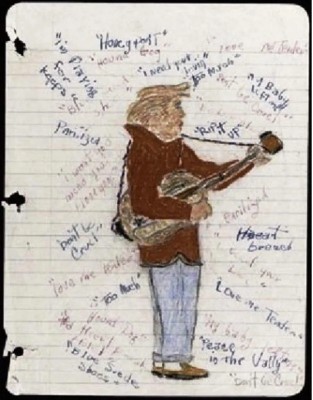The Real History of Olympic Games
The Olympic Games are a significant tradition that intertwines sport and culture, with a history spanning over 2,000 years. Despite some interruptions, the Games have successfully re-emerged, preserving the core values celebrated by the Ancient Greeks.
The tradition of the Olympic Truce, observed even in antiquity, continues today, with the United Nations adopting it ahead of each edition. The legacy of the Games is indeed profound, stretching back to 776 BC.
Ancient Origins
The first recorded Olympic Games occurred in 776 BC, marking the start of measuring time in Olympiads, or the four-year periods between each set of Games. Held every four years in Olympia, Greece, these early Games were dedicated to Zeus. They included various events such as running, long jump, shot put, javelin, boxing, and chariot racing, as well as artistic activities like music, singing, poetry, and theatre, highlighting a deep connection between culture and sport.
However, the Games were discontinued in 393 AD by Roman Emperor Theodosius I, who banned them for promoting paganism. This marked the end of the ancient Olympic Games until their revival in the modern era.
Modern Revival
Efforts to revive the Olympics began at the end of the 19th century, culminating in the first Olympic Congress organized by Baron Pierre de Coubertin in Paris from June 16 to 23, 1894. The event brought together key stakeholders, including 58 French delegates and 20 international representatives. This congress led to the official rebirth of the Olympic Games and the establishment of the International Olympic Committee (IOC).
The principles set by Coubertin emphasized promoting physical and mental development through sport, fostering mutual understanding and friendship among youth, spreading Olympic ideals globally, and uniting athletes worldwide for a grand celebration every four years.
Women Enter the Games
The modern Olympic Games debuted in Athens in April 1896. Paris hosted the second edition in 1900, where women competed for the first time. British tennis player Charlotte Cooper became the first female Olympic champion. Although only 22 women out of 997 athletes participated, their involvement marked a significant step toward gender equality in sports. Female participation has grown substantially, with women making up nearly half of the athletes at recent Games.
Milestones and Notable Events
The evolution of the Olympic Games over the centuries includes numerous milestones. The 1904 Games in St. Louis introduced the awarding of gold, silver, and bronze medals and saw the first known disabled athlete, George Eyser, compete. The 1912 Stockholm Games featured athletes from all five continents, and women participated in swimming for the first time.
From 1912 to 1948, artistic competitions were part of the Games, with medals awarded for sport-related artworks in architecture, literature, music, painting, and sculpture. Despite interruptions due to World War I, the Olympic flag and oath debuted at the 1920 Antwerp Games.
The 1924 Paris Games saw the construction of the first Olympic Village, a practice that continues today. The Winter Olympics were also inaugurated in Chamonix that year. In 1932, Mollie Phillips became the first female flag-bearer at the Winter Games in Lake Placid.
The 1936 Berlin Games introduced the Olympic flame and were the first to be broadcast live, albeit serving as propaganda for Nazi Germany. Post-World War II, the 1948 St. Moritz Games were dubbed "The Games of Renewal."
The 1960 Rome Games marked the beginning of the Paralympics, while the 1968 Grenoble Winter Games were the first to be broadcast live in color. The 1988 Seoul Games established the tradition of holding the Olympic and Paralympic Games in the same city.
Modern Changes and Social Impact
The 1994 Lillehammer Winter Games adjusted the schedule so that Winter and Summer Games no longer occurred in the same year. The 1996 Atlanta Games saw representation from all 197 National Olympic Committees, with Italian archer Paola Fantato competing in both the Olympic and Paralympic Games.
The 2000 Sydney Games featured a historic moment when North and South Korea marched together under one flag. The 2003 update to the Olympic Charter introduced the legacy concept, ensuring the Games contribute positively to their host cities.
The 2004 Athens Games showcased the Iraqi football team's inspiring performance amid conflict. The 2010 Singapore and 2012 Innsbruck Youth Olympic Games highlighted the movement's commitment to youth and education.
In 2014, the IOC amended the Olympic Charter to explicitly oppose discrimination, reinforcing the inclusive spirit of the Games.
The Olympic Games Today
The Olympic Games remain a universal phenomenon, engaging 206 National Olympic Committees, surpassing even the United Nations' 193 member states. This global reach underlines the movement's enduring efforts to promote sport, education, and international goodwill.
Get Free Gifts & Best Stories!
Join our newsletter to get our top stories of the month and free merch.
- 📚 Cool Stories: Read stories you won’t find in textbooks.
- 🎁 Free Gifts: Get exclusive stickers, t-shirts, and more!
Only 1 email a month. No spam, we promise!

